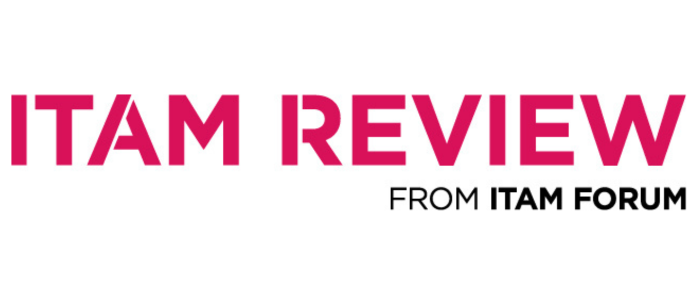End User Review – Accurate Data Problems

Welcome to the first in our series for our new feature – The End User Review. We have had a number of entries for this feature, so thank you very much to everyone that has contributed so far. If you’d like to have your say, and your story told, please complete the review here.
Our first End User Review comes from a SAM professional whose main challenges at the moment are getting reliable, accurate raw data about their estate.
What is your current job title?
A. Head of License Management for an IT Outsourcing organisation
What is the size of your organisation (users and devices)?
A. We have 3,000 users, with about 9,000 devices.
What are your current ITAM focuses or priorities?
A. We are currently focusing on getting complete, raw, accurate data. This is also our biggest challenge. Working out whether or not the data is accurate is a real challenge.
ITAMR: You are not on your own in finding this a challenge. It is vitally important for any ITAM or SAM function to have reliable, accurate data. However, assessing whether or not the data is reliable or accurate is a massive challenge, and requires a number of different data sources to validate its accuracy. It is then hard to trust the data, but once an organisation is sure of its accuracy regular checks are required to ensure it is still valid data.
Do you currently have a SAM tool in place?
A. Yes
What are the biggest challenges you face with your SAM Tool?
A. Having the correct software recognition and usage stats.
ITAMR: Again, you are not alone in struggling with recognition and usage stats accuracy. It is important that you ask your SAM tool vendor for help and support with issues like this. As long as you are under maintenance they should assist you with any issues you have with your SAM tool pretty quickly. If you are finding you are having problems with the support, it may be worth looking to a verified SAM tool partner in helping you with the issue.
It is also important to ensure that your SAM tool has been set up and implemented correctly. Asking the vendor to conduct a ‘health check’ may show up abnormalities with the initial setup, which is resulting in inaccurate software recognition and usage stats. Furthermore, if there are any software vendors or specific software that is not being recognised by the SAM tool, then you can either create the rules for the software yourself, or send all of the relevant data to the SAM tool vendor who will add the software into the database for you.
What aspects of ITAM or software licensing to do you feel you need greater support with?
A. Software inventory and recognition. A manufacturer should only be allowed to audit a customer if they provide all of the information required automatically through recognising and identifying the installed software on a system.
ITAMR: Audits are a challenge and fear for any organisation. However, through ITAM processes and governance you should get to a stage in which you are happy and comfortable in being ‘audit ready’. We have a number of audit guides on the ITAM Review, which may help you with the complexities of software audits.
Who would you consider to be the most challenging software vendor, and why?
A. IBM, due to their extremely complex license metrics and contract jungles.
ITAMR: IBM is a complex beast, which is why they are considered a Tier 1 vendor. We are always being told of users challenges with IBM software, which is why we are hosting a number of SAP/IBM seminars throughout 2015/2016. To see when we are hosting an IBM seminar, please check out our events page.
Furthermore, we also have an IBM Licensing Quick Guide which may help you in understanding IBM licensing.
What is the most complex license metrics you’ve encountered?
A. IBM Frequent and Infrequent Users
Where do you think the ITAM market is going/progressing?
A. This is going to gain more importance over the years as manufacturers have found this as a safe source of revenue. License metrics will become even more complex.
ITAMR: We completely agree with you. ITAM and SAM are increasingly becoming a vital part of any organisations setup, with an increased interest in avoiding the dreaded auditors. However, we hope license metrics do not become more complex. That is why the Campaign for Clear Licensing was set up, so that a different is made to the way in which software is licensed.
What elements of ITAM would you like to do more of, but haven’t got the time or resources?
A. Strategic planning
ITAMR: IT Asset Management can help an organisation with their strategic planning, however we would suggest that you ensure that you have accurate data first. There is no point in making any plans for the future with incomplete or inaccurate data. Rubbish in always equals rubbish out. Once you are confident in the data you are receiving and have a level of trust for the data, then you can start with the strategic planning element of ITAM.
Once again, thank you to our End User Reviewer for submitting their story. If you’d like to give your opinions, and be part of the End User Review, then please fill out the form here.
Your answers are anonymous and will never be pinned back to you.
Can’t find what you’re looking for?
More from ITAM News & Analysis
-
How IT Can Contribute Towards UK Government Efficiency Drive Without Impacting Services
UK Chancellor Rachel Reeves recently announcement a 5% efficiency savings target across all government departments. With UK public services under pressure, departments must ensure these savings do not come at the expense of essential services. Reeves ... -
'Big' ITAM News For 2024
As we come to the end of 2024, we wanted to recap some of the ‘biggest’ 2024 ITAM, SAM and HAM new stories along with commentary for our team of industry analysts. February. Flexera Acquires Snow ... -
Wisdom Unplugged UK 2024: Insights and Findings
The Wisdom Unplugged UK event, held in London on 26 November 2024, brought together a diverse group of ITAM professionals, partners, service providers, and independent consultants. The event focused on practical insights, collaboration, and tackle pressing ...
